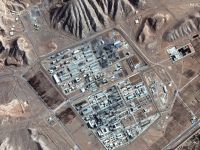Experts discuss the future of affordable housing in Egypt

During a press conference recently, a panel of industry experts discussed the future of affordable housing and low income mortgage finance as an issue of increasing national interest. Engineer Samih Sawiris, Chairman of Orascom Development Holding; Dr. Ahmed Zahran, Managing Director and CEO, Tamweel Mortgage Finance; and Engineer Omar Elhitamy, Managing Director, OHC discussed the factors that have contributed to the affordable housing crunch and called for stakeholder engagement in order to help alleviate the challenge.
Speaking about the importance of addressing Egypt’s need for affordable housing, its progress and challenges, Engineer Samih Sawiris, Chairman, ODH, said: “The substantial gap Egypt suffers in affordable housing has long been an issue of top national concern with devastating impact on a wide social segment and represents a primary reason that has led to the development of slum areas. Whilst the National Housing Project was intended to fill that gap, myriad obstacles and challenges stifled the initiative. Hence, OHC has worked to develop fully-integrated communities under the NHP regulations.” He added, “Government cooperation with the private sector is an effective means to control the spread of slum areas and reduce national expenditure on affordable housing.”
The conference also emphasized the important role of stakeholders in bridging the gap in supply versus demand, developing viable mortgage finance options and raising awareness among Egypt’s low-income population.
“The ratio of mortgages to GDP in Egypt ranges from 0.5 to 1%, a dismal figure compared to an average of 12% in developing countries. While the bulk of that figure was driven by mortgages extended for affordable housing, few developers and mortgage finance companies are keen to address this segment, explained Dr. Ahmed Zahran, Managing Director and CEO, Tamweel. It is crucial for all stakeholders to work together - policy makers, developers, finance companies – in order to bridge the gap for millions of Egyptians that need affordable housing,” he added.
Highlighting the private sector led initiatives to develop affordable housing in Egypt, Engineer Omar Elhitamy, Managing Director, OHC discussed the company’s successful developments of Haram City, Haram Life, and Qena Gardens. Construction started in Haram City on June 2007, with 3,000 units constructed by September 2007. By May 2008, 7,370 units were completed and the first resident moved in 18 months after construction began. Currently 11,500 units are built and Haram City is home to 30,000 persons.
Commenting on the way forward for affordable housing in Egypt, Omar Elhitamy, Managing Director, OHC, said: “An important stepping stone in bridging the gap between supply and demand is the collaboration between the government and private sector. This is best showcased by Mexico’s model in addressing their housing deficit. In Egypt, Haram City portrays a success which paved the way for the expansion of affordable housing locally and internationally. Through the development of a fully integrated town, we have attracted about 30,000 residents to date, generated employment within our town which resulted in the creation of a vibrant city”.
Based on OHC’s ambition to cater to the needs of the largest sector of Egyptian society possible, the company is currently developing Haram City’s newest phase, Haram Life that spans over 504,000 sq m and offers a new line of housing unit with modern designs. OHC is also looking into international prospects in countries like Romania, Turkey, Iraq and other African countries.
Background Information
Orascom Housing Communities
Orascom Housing Communities (OHC) is the first Egyptian company to focus on the development of high-quality affordable housing units within sustainable and fully-integrated townships in Egypt, regionally and internationally. Established in January 2007, OHC is a partnership between Orascom Development (OD) and US companies Blue Ridge and Equity International.The company's commitment to the community is ingrained in its business model. Each project is built from scratch, developing barren land from the ground up and providing the necessary infrastructure network.






